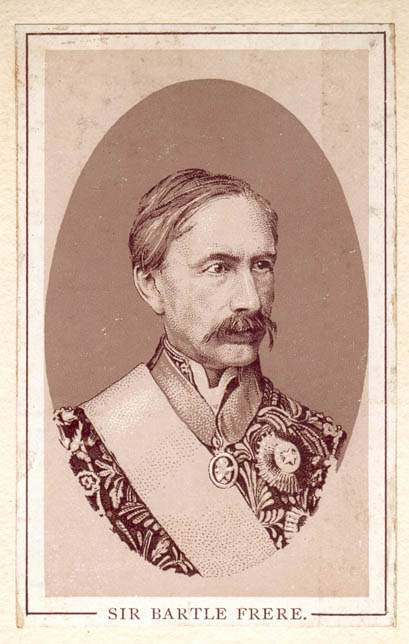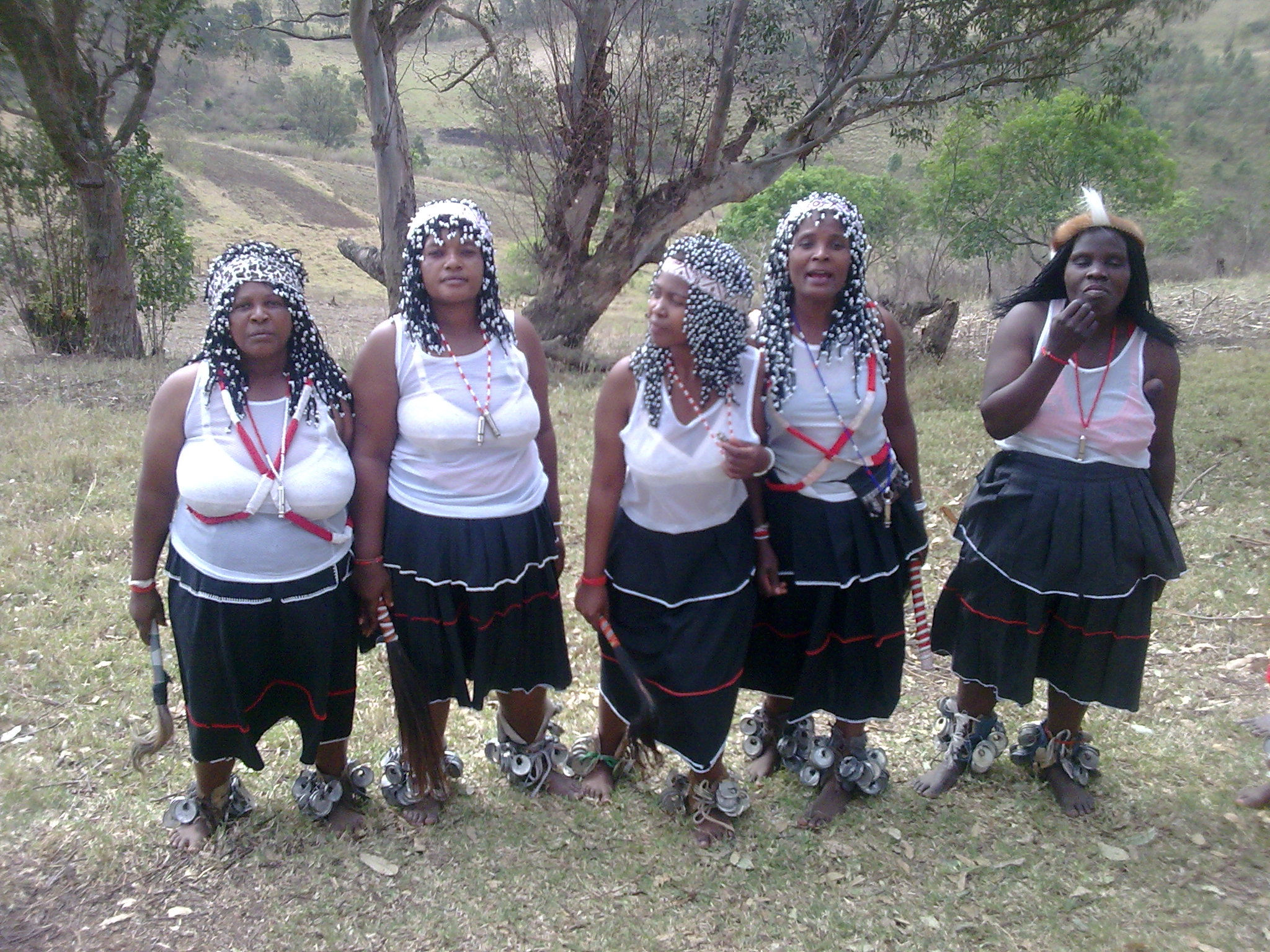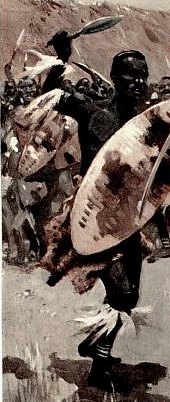|
INkatha (Zulu Artifact)
The iNkatha (plural: iziNkatha ) was the magic and sacred 'grass coil', a symbol of unity of the Zulu nation. The sacred item was normally kept under guard, and Zulu kings sometimes seated themselves on it when going to war. The preparation of an iNkatha can be traced back to the time of king Senzangakhona, the father of Shaka. The last ''inkatha yezwe'' (grass coil of the nation) was destroyed in 1879 during the Anglo-Zulu War. Preparation Specialized iziNyanga (or medicine men) initiated a ritual vomiting exercise when the Zulu army prepared for battle, by administering an emetic to the soldiers. Each soldier of the impi would vomit into the straw-filled pit, and the medicine men would bound the contents into a thick, coiled mat. The woven coil also included rags of the garments of foreign royals, material drawn from the regimental huts and other substances of metaphysical significance. Mundane use Besides the ''inkatha yezwe'', an inkatha may also be a grass coil that is place ... [...More Info...] [...Related Items...] OR: [Wikipedia] [Google] [Baidu] |
Zulu People
Zulu people (; zu, amaZulu) are a Nguni ethnic group native to Southern Africa. The Zulu people are the largest ethnic group and nation in South Africa, with an estimated 10–12 million people, living mainly in the province of KwaZulu-Natal. They originated from Nguni communities who took part in the Bantu migrations over millennia. As the clans integrated together, the rulership of Shaka brought success to the Zulu nation due to his improved military tactics and organization. Zulus take pride in their ceremonies such as the Umhlanga, or Reed Dance, and their various forms of beadwork. The art and skill of beadwork takes part in the identification of Zulu people and acts as a form of communication and dedication to the tribe and specific traditions. The men and women both serve different purposes in society in order to function as a whole. Today the Zulu people predominantly believe in Christianity, but have created a syncretic religion that is combined with the Zulu's pr ... [...More Info...] [...Related Items...] OR: [Wikipedia] [Google] [Baidu] |
Senzangakhona KaJama
King Senzangakhona kaJama (c. 1762 – 1816) was the king of the Zulu Kingdom, and primarily notable as the father of three Zulu kings who ruled during the period when the Zulus achieved prominence, led by his oldest son King Shaka. Biography His father was chief Jama kaNdaba and his mother was Mthaniya Sibiya. He succeeded on his father's death. During the chieftaincy of Senzangakhona, the Zulus were a small clan in the Mthethwa confederation which was ruled by Dingiswayo. Senzangakhona’s name is derived from the Zulu word meaning "he who acts with a good reason". Although the Zulus practised ritual circumcision, the practice was slowly dying out. Senzangakhona and Shaka were not circumcised, marking this trend in Zulu culture. Glyn Charles Hewson. 1970. ''Shaka's kingship and the rise of the Zulu state, 1795-1828'', page 67. University of Wisconsin--Madison. Wives and children Senzangakhona married at least sixteen women by which he had fourteen known sons. His da ... [...More Info...] [...Related Items...] OR: [Wikipedia] [Google] [Baidu] |
Shaka
Shaka kaSenzangakhona ( – 22 September 1828), also known as Shaka Zulu () and Sigidi kaSenzangakhona, was the king of the Zulu Kingdom from 1816 to 1828. One of the most influential monarchs of the Zulu, he ordered wide-reaching reforms that re-organized the military into a formidable force. King Shaka was born in the lunar month of ''uNtulikazi'' (July) in the year of 1787 near present-day Melmoth, KwaZulu-Natal Province, the son of the Zulu King Senzangakhona kaJama. Spurned as an illegitimate son, Shaka spent his childhood in his mother's settlements, where he was initiated into an '' ibutho lempi'' (fighting unit), serving as a warrior under Inkosi Dingiswayo. King Shaka further refined the ''ibutho'' military system and, with the Mthethwa Paramountcy's support over the next several years, forged alliances with his smaller neighbours to counter Ndwandwe raids from the north. The initial Zulu maneuvers were primarily defensive, as King Shaka preferred to apply pressure d ... [...More Info...] [...Related Items...] OR: [Wikipedia] [Google] [Baidu] |
Anglo-Zulu War
The Anglo-Zulu War was fought in 1879 between the British Empire and the Zulu Kingdom. Following the passing of the British North America Act of 1867 forming a federation in Canada, Lord Carnarvon thought that a similar political effort, coupled with military campaigns, might succeed with the African Kingdoms, tribal areas and Boer republics in South Africa. In 1874, Sir Bartle Frere was sent to South Africa as High Commissioner for the British Empire to effect such plans. Among the obstacles were the armed independent states of the South African Republic and the Kingdom of Zululand.Knight (1992, 2002), p. 8. Frere, on his own initiative, sent a provocative ultimatum on 11 December 1878 to the Zulu king Cetshwayo and upon its rejection sent Lord Chelmsford to invade Zululand. The war is notable for several particularly bloody battles, including an opening victory of the Zulu at the Battle of Isandlwana, followed by the defence of Rorke's Drift by a small British force from ... [...More Info...] [...Related Items...] OR: [Wikipedia] [Google] [Baidu] |
Inyanga
Traditional healers of Southern Africa are practitioners of traditional African medicine in Southern Africa. They fulfill different social and political roles in the community, including divination, healing physical, emotional and spiritual illnesses, directing birth or death rituals, finding lost cattle, protecting warriors, counteracting witchcraft, and narrating the history, cosmology, and concepts of their tradition. There are two main types of traditional healers within the Nguni, Sotho-Tswana, and Tsonga societies of Southern Africa: the diviner (''sangoma''), and the herbalist (''inyanga''). These healers are effectively South African shamans who are highly revered and respected in a society where illness is thought to be caused by witchcraft, pollution (contact with impure objects or occurrences) or through neglect of the ancestors. It is estimated that there are as many as 200,000 traditional healers in South Africa compared to 25,000 doctors trained in bio-medic ... [...More Info...] [...Related Items...] OR: [Wikipedia] [Google] [Baidu] |
Emetic
Vomiting (also known as emesis and throwing up) is the involuntary, forceful expulsion of the contents of one's stomach through the mouth and sometimes the nose. Vomiting can be the result of ailments like food poisoning, gastroenteritis, pregnancy, motion sickness, or hangover; or it can be an after effect of diseases such as brain tumors, elevated intracranial pressure, or overexposure to ionizing radiation. The feeling that one is about to vomit is called nausea; it often precedes, but does not always lead to vomiting. Impairment due to alcohol or anesthesia can cause inhalation of vomit, leading to suffocation. In severe cases, where dehydration develops, intravenous fluid may be required. Antiemetics are sometimes necessary to suppress nausea and vomiting. Self-induced vomiting can be a component of an eating disorder such as bulimia, and is itself now classified as an eating disorder on its own, purging disorder. Complications Aspiration Vomiting is dangerou ... [...More Info...] [...Related Items...] OR: [Wikipedia] [Google] [Baidu] |
Impi
is a Zulu word meaning war or combat and by association any body of men gathered for war, for example is a term denoting an army. were formed from regiments () from (large militarised homesteads). In English is often used to refer to a regiment, which is called an in or the army. Its beginnings lie far back in historic local warfare customs, when groups of armed men called battled. They were systematised radically by the king Shaka, who was then only the exiled illegitimate son of king Senzangakhona kaJama, but already showing much prowess as a general in the army () of Mthethwa king Dingiswayo in the Ndwandwe–Zulu War of 1817–1819. Genesis of the impi The Zulu impi is popularly identified with the ascent of Shaka, ruler of the relatively small Zulu tribe before its explosion across the landscape of southern Africa, but its earliest shape as an instrument of statecraft lies in the innovations of the Mthethwa chieftain Dingiswayo, according to some historians ( ... [...More Info...] [...Related Items...] OR: [Wikipedia] [Google] [Baidu] |
Solomon KaDinuzulu
Nkayishana Maphumzana 'Phumuzuzulu' Solomon kaDinuzulu (1891 – 4 March 1933) was the king of the Zulu nation from 1913 until his death on 4 March 1933 at Kambi at the age of 41 or 42. He was born on the island of St. Helena during the exile there of his father, king Dinuzulu kaCetshwayo. In conjunction with the ANC he was a founder of the original Inkatha (or ''Inkatha kaZulu'' as it was known) in the 1920s. It was mainly formed to act as a rallying point against Jan Smuts' Native Affairs Bill of 1920. One of his sisters was Princess Magogo kaDinuzulu, who became famous as a singer of traditional Zulu songs as well as for being the mother of Mangosuthu Buthelezi, leader of the Inkatha Freedom Party (IFP). He was succeeded by his son Cyprian Bhekuzulu kaSolomon Cyprian Bhekuzulu Nyangayezizwe kaSolomon (4 August 1924 – 17 September 1968) was the king of the Zulu nation from 1948 until his death at Nongoma in 1968. He succeeded his father, king Solomon kaDinuzulu, af ... [...More Info...] [...Related Items...] OR: [Wikipedia] [Google] [Baidu] |
Mangosuthu Buthelezi
Prince Mangosuthu Gatsha Buthelezi (born 27 August 1928) is a South African politician and Zulu traditional leader who is currently a Member of Parliament and the traditional prime minister to the Zulu royal family. He was Chief Minister of the KwaZulu bantustan during apartheid and founded the Inkatha Freedom Party (IFP) in 1975. He also served as Minister of Home Affairs from 1994 to 2004. Buthelezi was one of the most prominent black politicians of the apartheid era and his legacy in that period remains controversial. He was the sole political leader of the KwaZulu government, entering when it was still the native reserve of Zululand in 1970 and remaining in office until it was abolished in 1994. Critics described his administration as a de facto one-party state, intolerant of political opposition and dominated by Inkatha (now the IFP), Buthelezi's political movement. In parallel to his mainstream political career, Buthelezi held the chieftaincy of the Buthelezi clan and was ... [...More Info...] [...Related Items...] OR: [Wikipedia] [Google] [Baidu] |
Inkatha Freedom Party
The Inkatha Freedom Party ( zu, IQembu leNkatha yeNkululeko, IFP) is a right-wing political party in South Africa. The party has been led by Velenkosini Hlabisa since the party's 2019 National General Conference. Mangosuthu Buthelezi founded the party in 1975 and led it until 2019. The IFP is currently the fourth largest party in the National Assembly of South Africa, in 2014 yielding third place to the Economic Freedom Fighters, formed in 2013. Although registered as a national party, it has had only minor electoral success outside its home province of KwaZulu-Natal. Policies Policy proposals of the IFP include: * Devolution of power to provincial governments * Making the head of state and head of government posts separate, with a ceremonial figurehead as head of state. * Mixed-member proportional representation for the National Assembly. * Liberalisation of trade * Lower income taxes * More flexible labour laws * Autonomy for traditional African communities and their lea ... [...More Info...] [...Related Items...] OR: [Wikipedia] [Google] [Baidu] |







